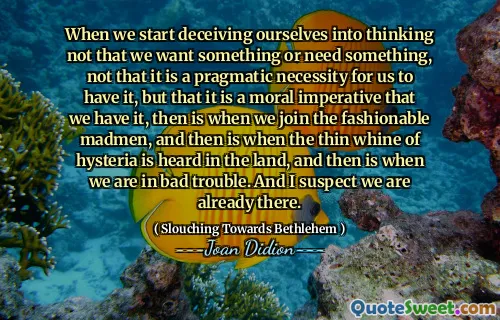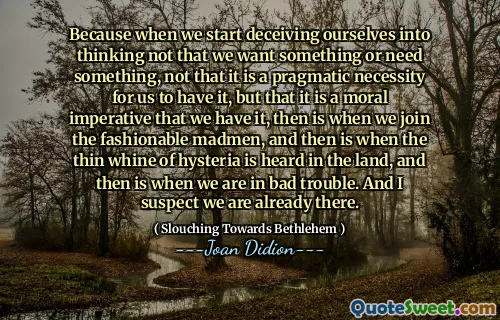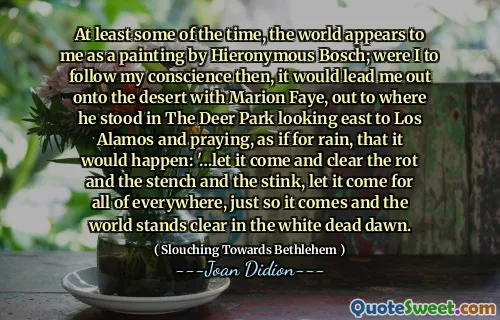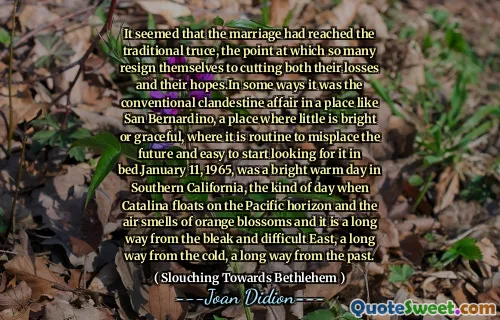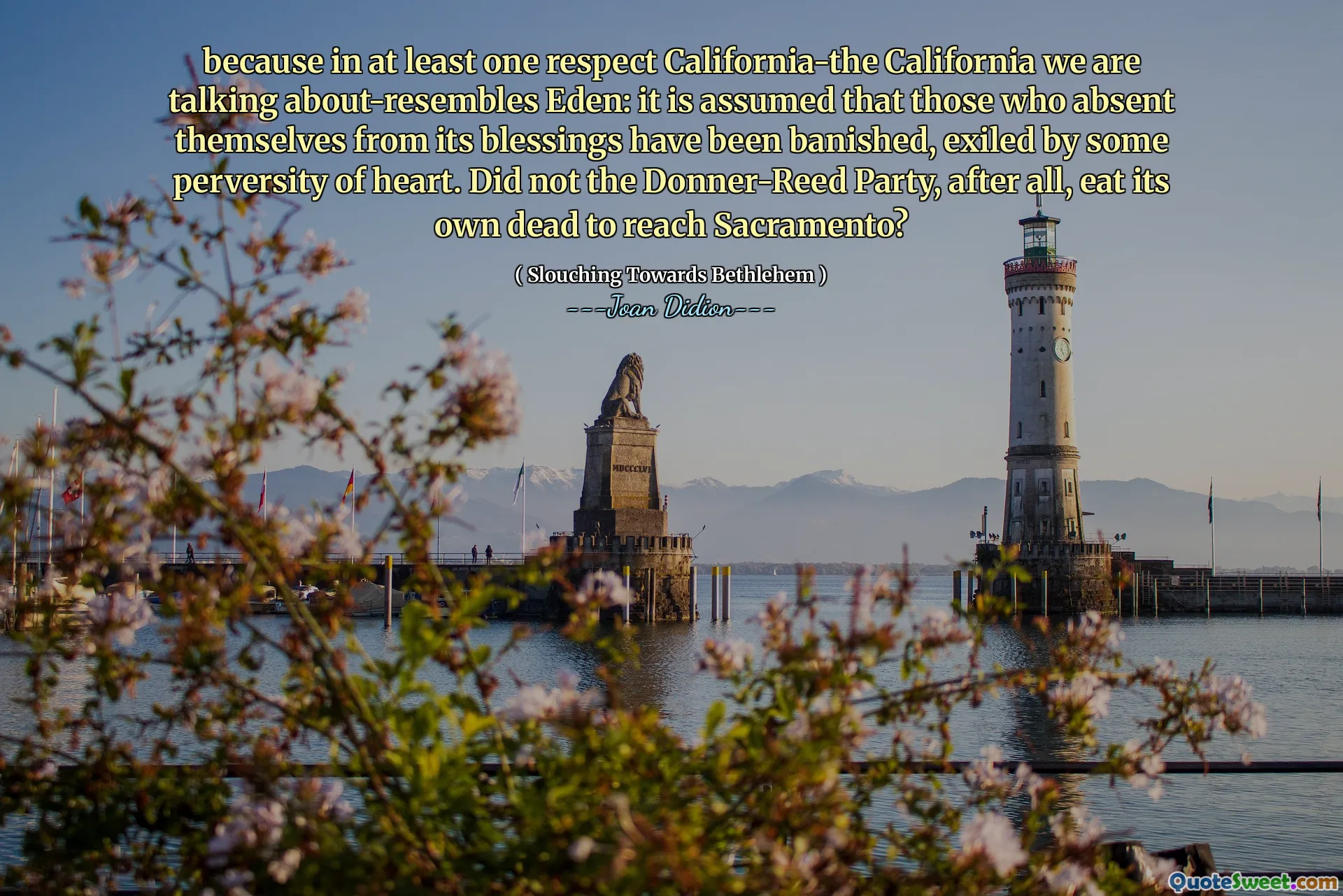
because in at least one respect California-the California we are talking about-resembles Eden: it is assumed that those who absent themselves from its blessings have been banished, exiled by some perversity of heart. Did not the Donner-Reed Party, after all, eat its own dead to reach Sacramento?
In Joan Didion's "Slouching Towards Bethlehem," the author reflects on California as a place that embodies both paradise and peril. She suggests that the allure of the state is so potent that it leads to the notion that those who leave or do not partake in its opportunities have somehow chosen exile. This perception paints a picture of California as a promised land, where acceptance signals worthiness, while rejection signifies a moral failing.
Didion's reference to the Donner-Reed Party serves as a stark illustration of the lengths to which people will go to achieve their dreams in California, even resorting to desperate measures. The grim history underscores the idea that California’s promise comes with a dark past, hinting at the complexities underlying its seductive charm. Thus, Didion reveals the duality of California, where dreams flourish but at potentially great costs.
